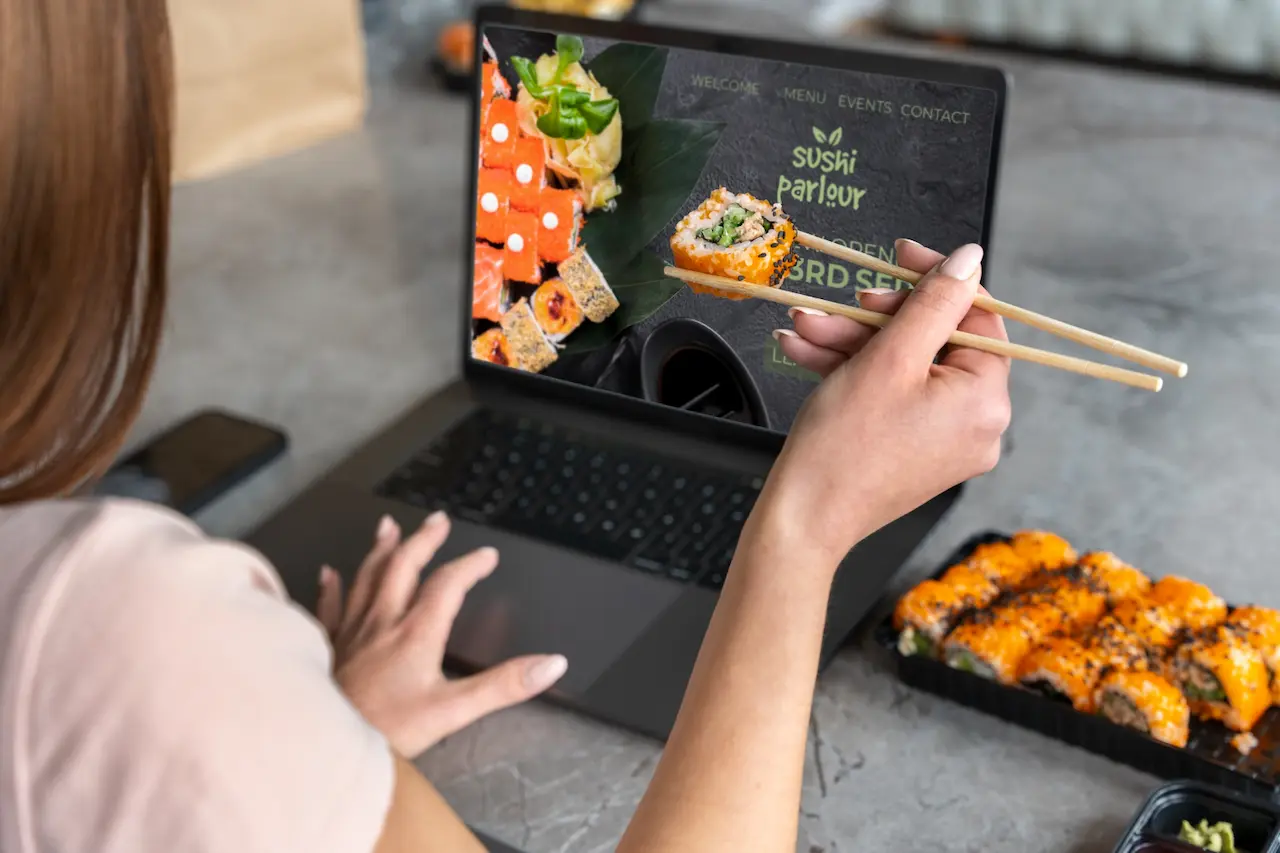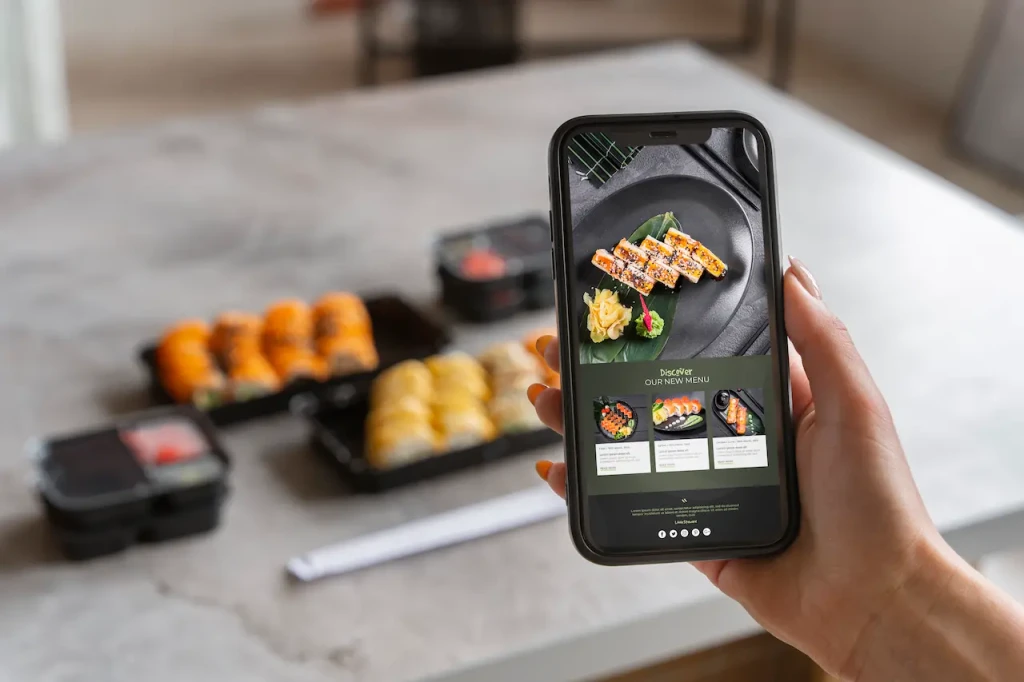In almost any industry, it is important to have an online presence. As a business owner, you want to position your brand where everyone can access it, and the best place for that is the internet. In this article, we will share why restaurants should have a business website.
Why a Restaurant Website Matters
1. First Impressions and Credibility
Most guests will research a restaurant before they visit. If they cannot find your website or only discover outdated information, they may decide to dine elsewhere. A professional, modern website shows that you care about quality and gives people confidence in your brand.
2. Control Over Your Brand and Message
Third-party platforms restrict how you present your restaurant. With your own site, you can design pages that reflect your brand identity, highlight your story, and showcase what makes you different. You have full control over the content, the visuals, and the promotions you want to push.
3. Better Visibility in Search Engines
An optimized restaurant website helps you appear in Google searches when people look for places to eat. Whether they type “best Italian restaurant in Bali” or “family friendly brunch near me,” a well-built site with local SEO gives you a better chance of being discovered by potential diners.
4. Showcase Menu, Ambience, and Specials
Your menu is one of the most important tools for attracting customers. A website lets you share an updated, easy-to-read version with enticing photos of your dishes. You can also highlight seasonal promotions, happy hours, or events, giving people more reasons to choose your restaurant.
5. Enable Reservations and Online Ordering
Convenience is everything for modern diners. Many people prefer booking a table or ordering food online rather than calling. By integrating reservation systems or online ordering directly on your site, you remove barriers and make it simple for guests to take action immediately.
6. Collect Customer Data and Build Loyalty
Your website is also a valuable source of customer insights. Through newsletter signups, contact forms, or loyalty programs, you can gather information that helps you stay connected with guests. This data allows you to create personalized offers, send reminders, and encourage repeat visits.
7. Cost Efficiency and Long-Term Value
While setting up a restaurant website requires an initial investment, it pays off over time. Unlike third-party delivery apps or listing sites that charge high commissions, your website is an owned asset. Once built, it continues to work for you, attracting customers and reducing reliance on external platforms.
8. A Platform for Storytelling
Restaurants are not only about food. They are about experiences, memories, and stories. A website gives you space to share your history, showcase your team, and tell guests what inspires your cuisine. Storytelling adds personality to your brand and creates emotional connections that keep people coming back.
Key Features of a High-Performing Restaurant Website
To make your website a powerful sales and marketing tool, certain features are essential:
Feature | Why It Matters | Best Practices |
|---|---|---|
Mobile Responsiveness and Speed | Most visitors browse on their phones. A site that is slow or not mobile-friendly drives them away. | Use lightweight images, optimize code, and test for speed on different devices. |
Clear Contact Info and Location | Diners want instant access to your phone, address, and hours. | Place contact details prominently and embed interactive maps. |
Updated and Visual Menu | Your menu often decides whether someone visits. | Use text plus images, avoid outdated PDFs, and keep it current. |
Online Ordering or Reservation System | Makes it easy for customers to act. | Integrate secure booking or ordering tools with clear buttons. |
High-Quality Photos and Videos | Images sell your food and atmosphere before the first visit. | Use professional photography and include shots of dishes and dining spaces. |
Trust Signals and Reviews | Builds confidence in new guests. | Show reviews, awards, press mentions, and testimonials. |
SEO and Local Optimization | Improves visibility for searches in your area. | Use local keywords, meta tags, schema markup, and business listings. |
Blog or Updates Section | Keeps content fresh and engaging. | Share chef stories, recipes, or upcoming events. |
Clear Calls to Action (CTA) | Guides visitors toward the next step. | Use visible buttons like “Book a Table,” “Order Now,” or “View Menu.” |
Analytics and Tracking | Measures what works and what needs improvement. | Track traffic, bookings, and user behavior with tools like Google Analytics. |
These features ensure your site goes beyond aesthetics and actively drives business results.

Best Practices for Restaurant Websites
Keep design simple and user-friendly so guests find what they need quickly.
Update menus, hours, and promotions regularly to avoid confusion.
Use consistent branding so your site matches the feel of your restaurant.
Focus on local SEO by including your city and neighborhood in content and metadata.
Provide contactless features like QR code menus or online ordering for added convenience.
Test your site often to ensure fast loading and smooth navigation.
Monitor analytics to understand what pages and features drive the most reservations.
FAQs
1. Do small restaurants really need a website?
Yes. Even small and neighborhood restaurants benefit from having a site. It helps guests find accurate information and builds credibility.
2. What is the most important feature to include first?
An updated menu, contact details, and location are the most critical. Without these, guests will look elsewhere.
3. Is a template enough for a restaurant website?
Templates are good for starting out. As your restaurant grows, a custom design that reflects your brand and optimizes user experience will perform better.
4. How quickly will a website impact reservations?
The impact can be seen within weeks. A new site increases online visibility and convenience, which often leads to more inquiries and bookings.
Turn Your Restaurant Website Into a Growth Engine
A restaurant website is more than an online brochure. It is a vital tool that builds trust, improves visibility, and converts casual visitors into loyal guests. By investing in the right features such as online booking, updated menus, and mobile-friendly design, you create a digital space that supports both customer convenience and long-term business growth.
At Juicebox, we specialize in building restaurant websites that are beautiful, functional, and designed to convert. From web design and branding to SEO and integration, our team ensures your online presence attracts more diners and grows your business. Contact us today to take the next step toward creating a website that truly represents your restaurant.









